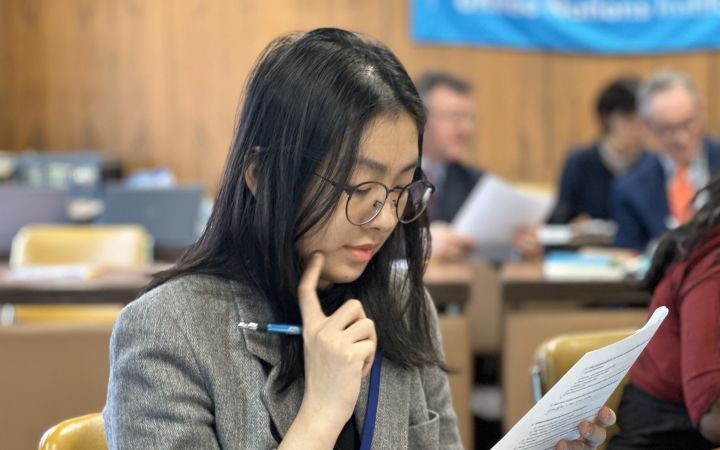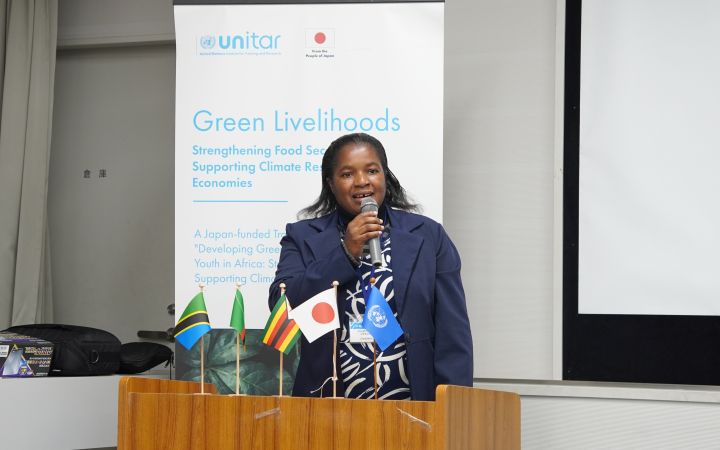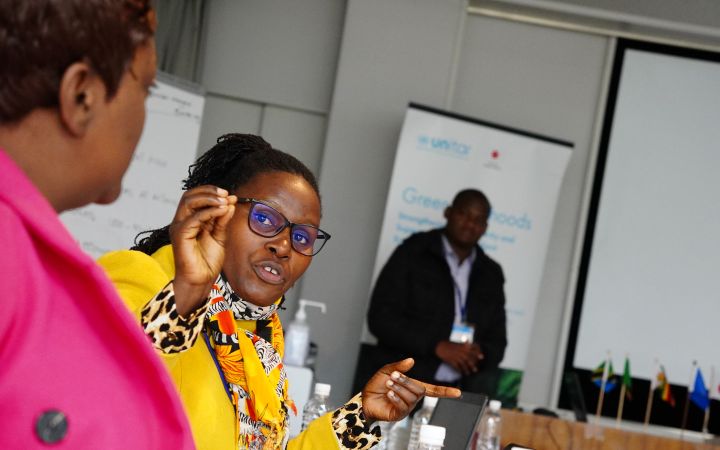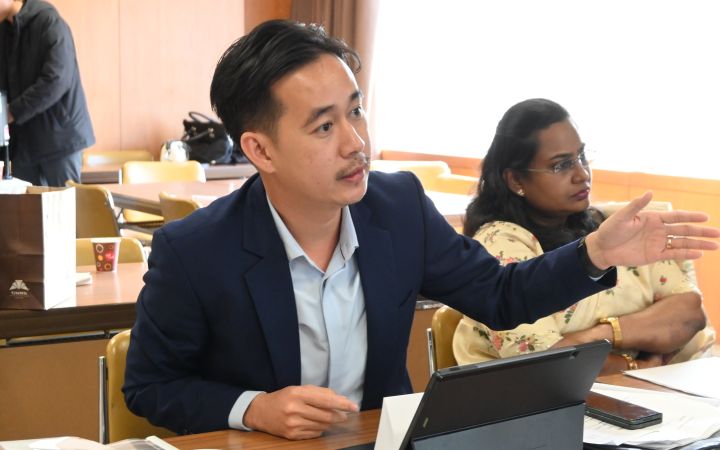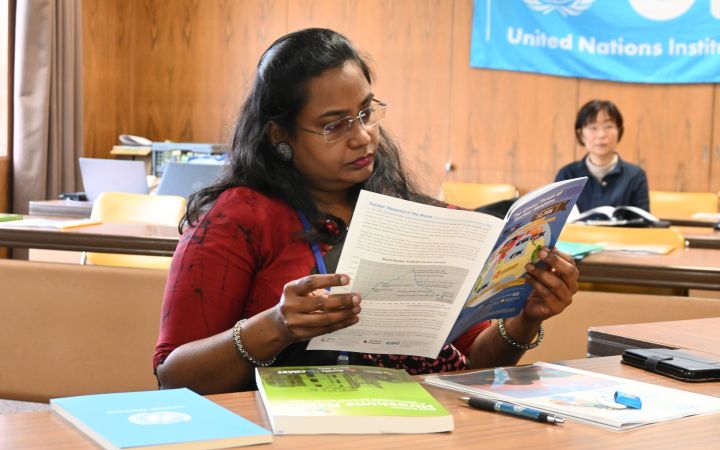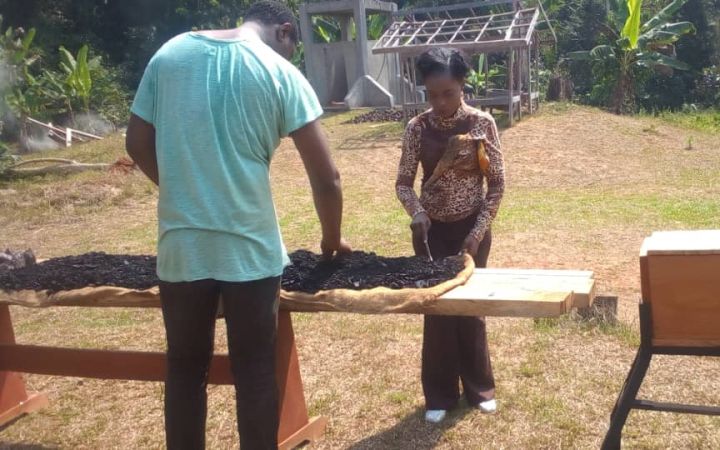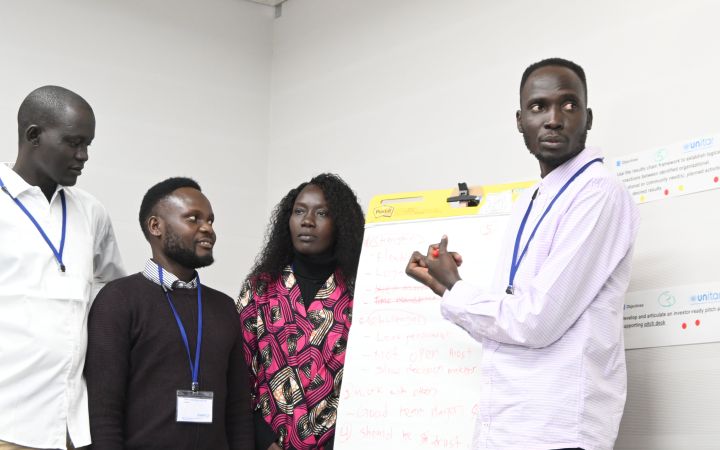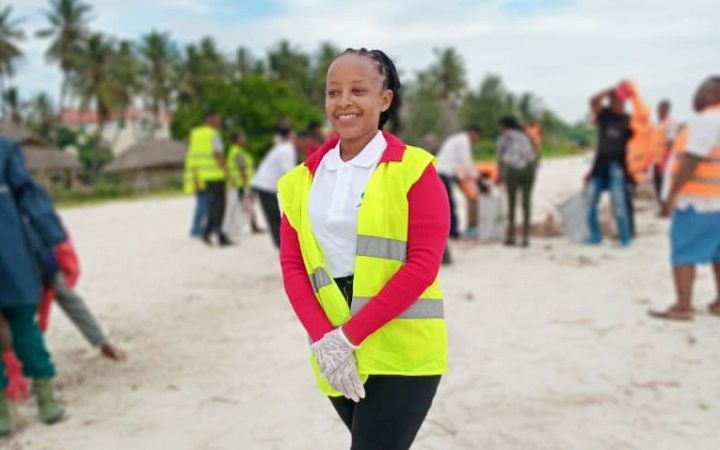Displaying 51 - 60 of 132
22 August 2024, Hiroshima, Japan – Ngan Ha Mai is an official in Vietnam’s Ministry of Foreign Affairs, whose work portfolio focuses on nuclear disarmament, non-proliferation and peaceful development of nuclear technology. She is one of the 18 participants of the 2024 UNITAR Hiroshima Training Programme on Nuclear Disarmament and Non-Proliferation.
22 August 2024, Hiroshima, Japan – For most people, organic waste is a problem to be managed. But to plant pathologist Dr. Josephine Jere, it is a resource. Josephine believes managing organic waste in urban areas can provide a sustainable means to revive degraded agricultural land, particularly in areas where traditional farming methods have led to soil infertility.
19 August 2024, Hiroshima, Japan – Tanzanian entrepreneur and assistant lecturer Angela Baltazary is passionate about conservation. Through the UNITAR programme on green livelihoods, she developed and embarked on a project to convert the methane in organic waste to protein, which would then be used in her venture that breeds, raises and harvests fish for food. Using organic waste in this way reduces greenhouse gases while contributing to public health and food security in Tanzania.
16 August 2024, Hiroshima, Japan - The threat of a nuclear world war is far from over, with several countries still holding nuclear weapons in their arsenals. As this generation is accountable to future generations, the role of passionate diplomats negotiating for a nuclear-weapons-free world has become more important than ever. One such diplomat is Soksamnang “Sam” Nov from Cambodia. He is currently a First Secretary to the Permanent Mission of the Kingdom of Cambodia to the United Nations in New York. He engages in work related to the First Committee including the Treaty on the Non-Proliferation of Nuclear Weapons (NPT), the Treaty on the Prohibition of Nuclear Weapons ( etc.. He participated in the 2024 UNITAR Hiroshima Nuclear Disarmament and Non-Proliferation Training to further his skills as a diplomat.
Prashanthi Krishnamoorthy is the deputy director of the South Asia Division at the Sri Lanka Foreign Service, where she manages bilateral relations with India, Maldives and Pakistan. Prashanthi took part in the FY2023 UNITAR Hiroshima Training Programme on Nuclear Disarmament and Non-Proliferation to enhance her ability to support and advance global disarmament and non-proliferation efforts.
Vannie Djounguep is reshaping gender equality, entrepreneurship and environmental sustainability in Cameroon and beyond. Vannie is the founder and executive director of an organization that advocates for gender equality and environmental protection, especially in the informal sector. She participated in the UNITAR Advancing Gender Equality and Women Empowerment 2023 Entrepreneurship and Financial Literacy Training Programme, organized in collaboration with the United Nations Development Programme (UNDP) and generously funded by the Government of Canada.
Kuena James Dak Kuena is a South Sudanese entrepreneur, social worker and ICT specialist who seeks to empower local farmers and advance the agricultural sector by using the power of technology. He is currently ICT and communication assistant for an NGO that promotes youth livelihoods, peace building and education among vulnerable communities and refugees in Uganda and South Sudan. Kuena joined the UNITAR programme Great Ideas Space for South Sudan 2023: Entrepreneurship and Innovation Training for Food Security so he could learn how to operationalize his agritech project.
May 2024, Hiroshima, Japan - Agnes Chiu, a high school student in Hong Kong, leads a global youth initiative called “Design Your Life at 25” to help teenagers envision their life and career paths and make informed decisions to reach their dreams. In immersive three-hour workshops, Agnes and her team guide teenagers through self-discovery journeys to envision their lives at age 25. To date, the initiative has already trained 300 young people from 14 countries. Inspired by the UNITAR Asia Pacific Ambassador Programme, Agnes and her team are now developing an app driven by artificial intelligence (AI) to enhance engagement and accessibility for her workshops.
23 May 2024, Hiroshima, Japan – In the heart of Baghdad Medical City is a woman dedicated to improving Iraqi health care: Dr. Mawadah Arif Hammadi. As a junior resident physician, Mawadah works in the emergency room, where she cares for the many frightened people who come through the door. Doing what she can to ensure that every Iraqi person gets accessible, quality health care, Mawadah is developing a project to raise breast cancer awareness among Iraqi women.
23 May 2024, Hiroshima, Japan - Gloria Loishiye is one of over 2,000 alumni of the 2023 UNITAR Advancing Gender Equality and Women Empowerment Entrepreneurship and Financial Literacy Training Programme. She is a Tanzanian entrepreneur whose ventures span landscaping, gardening and environmental conservation.


